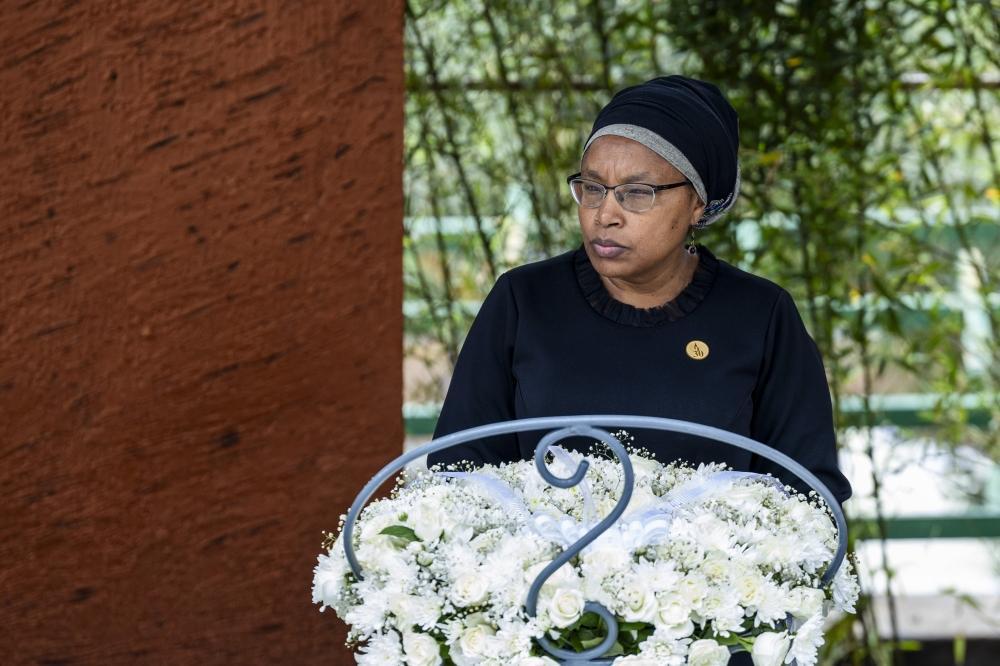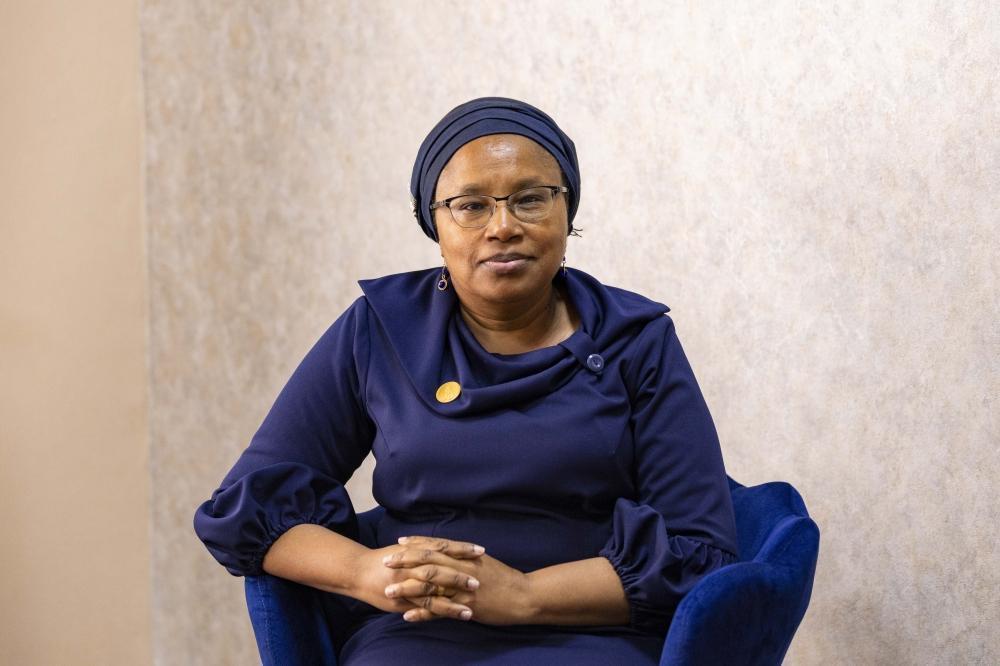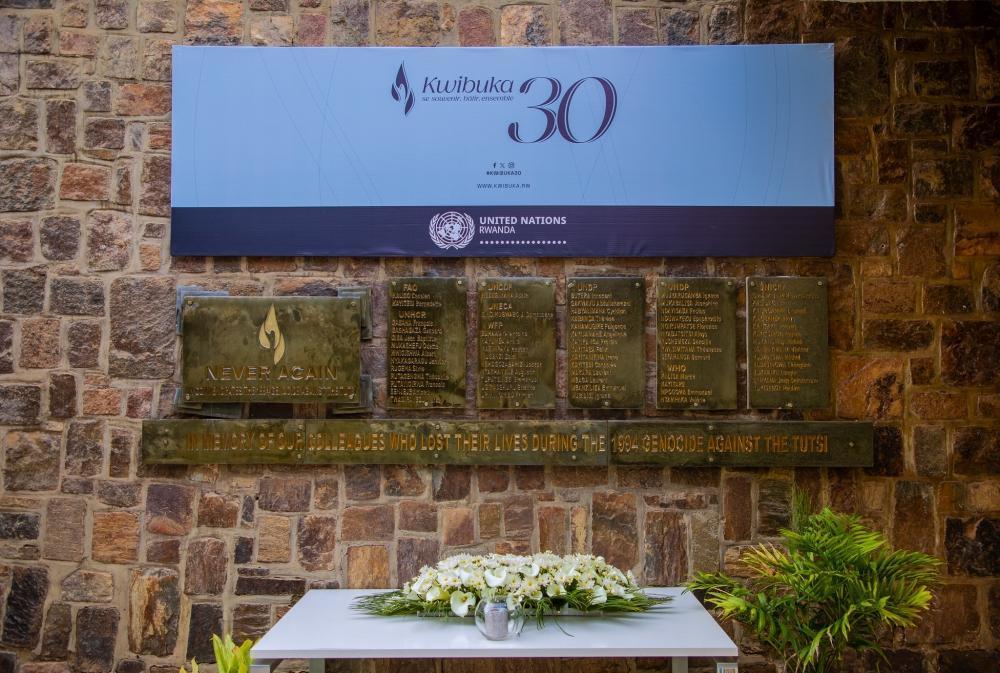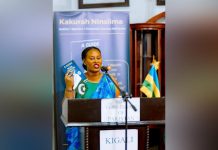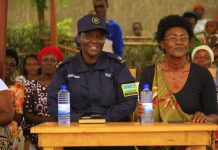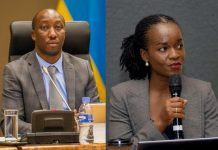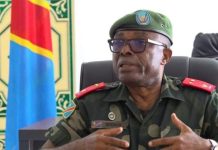Africa-Press – Rwanda. Alice Wairimu Nderitu, the United Nations Special Advisor on the Prevention of Genocide, was among the many foreign dignitaries and leaders who travelled to Kigali to stand with Rwandans on the occasion of the 30th commemoration of the 1994 Genocide against the Tutsi, on April 7. The next day, The New Times’ Moise Bahati got to interview her.
In the interview, Nderitu talked about, among other things, her reflection of Rwanda’s journey of reconciliation and keeping the memory, as well as the what her office is doing to counter the denial of the Genocide against the Tutsi.
She tackled the question of genocide denial, revisionism, and the continued presence in eastern DR Congo of the FDLR, and especially the genocidal militia group’s collaboration with the Congolese Government. Nderitu also talks about risk factors for a genocide in eastern DR Congo, where the Congolese Tutsi and Banyamulenge communities are persecuted.
The excerpts:
This is not your first time in Rwanda. How does it feel to be back, especially during the commemoration of the 1994 Genocide against the Tutsi?
I’ve come back to Rwanda for this commemoration. It feels like 30 years has been a very short time because when the genocide against the Tutsi happened, I was young. I had just graduated from the University of Nairobi. And we were very conscious that there was something that was happening here. Of course, we didn’t realise the magnitude.
For me, the knowledge that whatever was happening was really major actually came from a very unlikely source. In the fish markets in Nairobi people stopped buying fish. And people were saying, even the market women themselves were saying, ‘we have a big problem; people don’t want to eat this fish because this fish has eaten the Tutsi.’ So, that was the first time I had this connection.
Of course, we had learnt the [colonial] history of Rwanda and Burundi, Ruanda-Urundi and Congo. But they hadn’t taught us that there had been pogroms against the Tutsi in 1959, 60, 63. It feels like yesterday. I feel like 30 years hasn’t gone by. I’m very surprised to see people who are 30 years old. Imagine they were not born when this happened.
I feel a huge sense of weight in terms of the fact that we still have to teach people that a genocide happened against the Tutsi. How come nowadays there’s more need to do so than there was even 10 years before?
You have taken part in Kwibuka 30. What do you find important about this commemoration?
It’s the involvement of people, globally. There are Kwibuka 30 [events] going on everywhere in the world; all UN offices in the world marked Kwibuka. The Secretary General had a speech that was read everywhere in the world, and they lit candles everywhere. But over and above UN offices, other governments around the world did the same.
Last year, I went for the 29th commemoration at the African Union. I was struck by the fact of all these people coming together from all the member states. I made a speech and spoke about genocide denialism and we then went for a Walk to Remember with Ethiopian students around Addis Ababa, around the African Union. I was struck by how together they were with Rwanda at this particular time.
I do know, of course, that they are those who are not for commemoration and have their own reasons. And I do know that they will always be there and that we need to build a larger critical mass of people, willing and ready to stand up for the facts of the genocide having happened against the Tutsi.
Alice Wairimu Nderitu, the United Nations Special Advisor on the Prevention of Genocide during the interview in Kigali on April 8, 2024. Photo by Christiane Murengerantwari
A recent study by the Ministry of National Unity showed that over 90 percent of Rwandans have a shared sense of national identity. What do you make of Rwanda’s journey of recovery and reconstruction?
It was well summarised yesterday [April 7] by President Kagame’s speech. It was such an iconic speech; I think it’s one of those speeches that will enter the annals of history as one of the best speeches. It was a really good speech, because it spoke to the person but also to the country. Rwanda is a much-admired country now. Many people, like in Kenya where I come from, it’s customary that when people are elected into office, the first thing they want to do is to go and benchmark in Rwanda. And we talk about it a lot.
In terms of national identity, the report from the Ministry of Unity is a very good thing. It shows that people understand that there was never really a difference in Rwanda; that Hutu and Tutsi are not differences that divide people, that Rwandans have more in common as Rwandans than all these divisions that they ended up getting into.
We study a lot [about] post-genocide societies and how they change. Rwanda has done very well in terms of ensuring that people are growing up knowing that there’s something that they belong to and that is Rwanda and that there is something to be so proud of, having as your first basic identity being a Rwandan and speaking Kinyarwanda.
We’ve seen it in Tanzania, where President [Julius] Nyerere did a good job with Kiswahili, since they have so many ethnic communities. So, it’s actually possible to have this done. It’s been 30 years and sometimes we always say it takes a generation. This particular generation of young people in this country will take Rwanda to heights that nobody ever imagined.
I worry, though, about [Genocide suspects and deniers in] the diaspora and the fact that courts of law can only try a few people, in many cases. These are high-level perpetrators. And low-level perpetrators get away with a lot and unfortunately many of them would be in neighbouring countries and they have been advancing genocide ideology. What I tell them is that we are watching you. You are not doing this in isolation. And for us to say that there’s a commitment for a genocide never to happen again against the Tutsi to whom it was targeted, we are very serious.
Rwandan leaders and Genocide survivors are worried about the persistent genocide denial, revisionism, and presence in eastern DR Congo of the FDLR, and especially the militia group’s collaboration with the Congolese Government. How should the question of the FDLR and genocide denial be resolved?
The legal framework of the office that I hold is the 1948 Convention for the Prevention and Punishment of the Crime of Genocide. So, we have prevention, and we have punishment. Punishment is accountability. The government of DRC needs to hold accountable any genocidaire who escaped to DRC. They need to be held accountable for what they did, even if it was 30 years ago.
The second thing that I think that’s so important is we need to do a lot of education. I issued quite a number of statements in the run-up to the elections in DRC, where this consistent narrative against the people who are perceived to be of Tutsi descent, the Banyamulenge,… I saw that consistently coming up and I put it out and I said, there is a consistent narrative of hate speech. We need education, but we also need to say, very firmly, like I’m saying now, that the colonial borders that created DRC, that created Rwanda, found the people who are of Tutsi descent in DRC. They are indigenous to DRC; that is their country.
Names of UN staff members killed during the 1994 Genocide against the Tutsi are written on a wall at the UNDP Office in Kigali.
So, all these attempts to expel them and to advance genocide ideology on them, and the genocide that already happened to the Tutsi in this country to advance it in DRC are completely unacceptable. We will not take it, and I will keep talking about it.
We need to build a critical mass of people who are saying the things I’m saying right now. I don’t know why people are afraid to say [it] when it’s so clear that there is a community that is targeted and that community is Congolese and of Tutsi descent.
What led to your conclusion, in November 2022, that violence targeted at Kinyarwanda-speaking communities, the Tutsi and the Banyamulenge in eastern DR Congo, is “a warning sign” in the Great Lakes?
Genocide, which is described as intent to destroy, in whole or in part, an ethnic, racial, religious or national group, is a very specific crime. It’s a crime against an identity group. And what we call atrocity crimes are genocide, war crimes, and crimes against humanity. We play close attention to the fact of what we call risk factors. I always list them in my statements. I say we are seeing the following risk factors.
At that point, I talked about hate speech against Kinyarwanda-speaking people. I have since changed. Now, when I speak, I’m very specific. I say Banyamulenge, I say Tutsi of Congolese descent because the FDLR also speak Kinyarwanda. I will try to be even more specific because the people who are targeted are not everybody who came from Rwanda. If anything, the FDLR is a part of those targeting these people; the Tutsi and the Banyamulenge in eastern DRC.
We call them the protected groups. So, what are the risks for these particular groups? For example, in any context, if you see the presence of vigilantes, militias… we saw the mobilisation that happened last year where there were young people, young women and men, showing up wanting to be recruited into a militia, a militia that was supposed to protect their country from invasion – and with no signs that there was going to be any invasion; just a narrative that is put out there. You see this kind of things especially when an election is coming up. It was very worrying for us as we observed all that.
They are, in the Kivus, and also other parts of the DRC but let me concentrate on the Kivus’ risk factors for genocide, war crimes and crimes against humanity.
Congolese refugees in Rwanda and in the region have, on multiple occasions, condemned ongoing violence against the Banyamulenge, and the Tutsi, in eastern DR Congo as a genocide supported by government forces. They also called upon the international community to call out the Congolese government and to stop the killings. Could this be yet another “failure of humanity,” to use the words of former UN force commander Romeo Dallaire who was in Rwanda, in 1994?
Genocides are only proven in courts of law. And I would think that’s a huge disadvantage in terms of the whole arrangement but at the same time, it’s an advantage because what is proven in a court of law cannot be disputed. And we can see that as the truth. So, when we say, for example, that the first conviction for genocide happened here in Rwanda in the Jean Paul Akayesu case, that’s a fact that’s undisputed, that nobody can take away. Unfortunately, we know how long it takes before we get a conviction, or even before somebody is prosecuted. We have several people who are indicted for genocide who have not been arrested.
So, I would say that the primary role of protection of any population belongs to this state. We must first ask the government of DRC its primary role of protecting its own population because every government has that role. The international Community comes in when there has been a complete failure in terms of trying to solve the issue.
Cases of Genocide ideology and denial are prevalent during the commemoration period in Rwanda and beyond. How should the country deal with this issue or can your office do anything about it?
At Kwibuka 30, we give our condolences to all those who were killed and we do know that those who were killed were Tutsi. This has been prosecuted in so many courts of law. I want to make it very clear that the [UN] General Assembly-accepted language, approved by all 193 members, is that the name of the genocide is Genocide against the Tutsi, in which Hutu and others who opposed it were killed.
There’s an ideology, and there’s not much we can do, because these people, some of them do it out of ignorance. But for some of them, it’s because they got away with it. As I was saying earlier, courts of law can only get the highest level of perpetrators. We have maybe thousands and thousands of lower-level perpetrators who got away with it.
It’s very difficult to stop this ideology, but we have to keep talking about these facts and we have to do so in a more constructive way so that it’s not left to an office like ours to be the only one saying these things.
At the UNDP Office in Kigali, on Monday, April 8, 2024, UN Special Advisor on the Prevention of Genocide Alice Wairimu Nderitu (right), Prosecutor of the International Residual Mechanism for Criminal Tribunals Serge Brammertz (centre) and UN Resident Coordinator in Rwanda Ozonnia Ojielo bow in honour of UN staff members killed during the 1994 Genocide against the Tutsi.
It has to be taught everywhere in schools. We have to put it out to media houses all over the world that this is the official name of this genocide. We need sensitisation workshops for media, for journalists, for social media bloggers. There is a lot of work that needs to be done and it’s unfortunate that 30 years after it happened, we still have to do this work. But that’s the nature of prevention. It is very unfortunate that it’s left to survivors to be the ones to keep proving, over and over again, saying ‘it happened to us.’ To the survivors, I can just say, Poleni sana, at this time when everybody should be empathizing with you.
In his Kwibuka 30 speech, President Kagame said that certain countries chose to remain vague about what happened in Rwanda. What comes to mind is the US and UK governments which refused to acknowledge, officially, that what happened in Rwanda was a genocide against the Tutsi. What do you make of this?
I don’t know, to be honest. Surely, there are not many questions I say I don’t know to. I really don’t know what would inform that thinking. It’s something I will also pay attention to. If 30 years down the line, you still need to do education that a genocide happened against the Tutsi, when an international criminal tribunal, not a local court, but an international criminal tribunal, determined that a genocide happened here. I really need to pay attention to those who do not acknowledge it as such.
What is your message to Rwandans and survivors of the 1994 Genocide against the Tutsi?
It’s probably one of the most unfortunate things in the world that the survivors have to keep defending and explaining that a genocide happened to them and they have to be put in a space where they are actually expected to defend the truth that it did happen to them.
To find the arguments made by lawyers who defended genocidaires being used by people who are denying that a genocide happened, we really must take these people on and need to be relentless as much as they are. They need to be called out and told that we are not afraid of them. They need to know that.
For the survivors, we are doing our best as an office to build a critical mass of people who can speak for you. You have many friends out there you don’t know. Each time we call meetings, we find people who speak very, very strongly. We have a very strong community of judges and prosecutors of the International Criminal Tribunal for former Yugoslavia and the Residual Mechanism of the ICTR. That whole ecosystem, we are a community that actually feels very aggrieved when somebody tries to denigrate the fact that a genocide against the Tutsi happened here.
Genocides are identity crimes. They happen to people because of the identity they belong to. Those people don’t even have to have done anything; the Tutsi didn’t have to have done anything. They are just targeted because there is a genocide against them. So, I would just like to say, thank you very much, and that we will keep this flame burning. This Kwibuka flame will not go off; we will keep it burning outside of Rwanda and everywhere we go.

For More News And Analysis About Rwanda Follow Africa-Press

